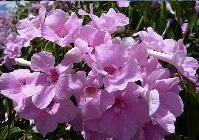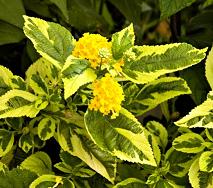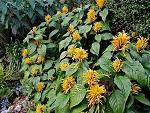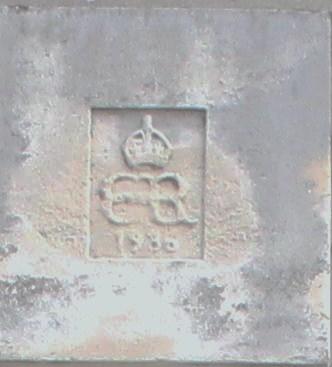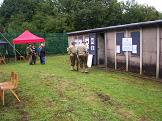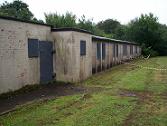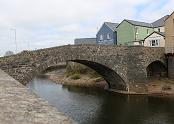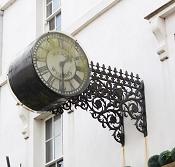Bridgend PAST
PRESENT
FUTURE?
Bridgend History

 Bridgend
the town by the river
Bridgend
the town by the river
Welcome to
Alan's
Gardeners Calendar
November
General Gardening Tips for November!
- Make sure that the canes of your climbing roses and other vine type
plants are securely fastened to their supports. Winter winds can whip
and severely damage unprotected plants. Don't tie them so tightly that
the string or twist-tie cuts into the stem. I recommend using a length
of an old nylon stocking because it will stretch as the plant grows,
rather than cutting into the stem, as string will do. Don’t forget to
tie in the new fruit bearing canes of berries.
- And on a good day giving wooden greenhouses and sheds a coat of
preservative.
- Mound five to six inches of soil around the bases of your hardy
fuchsias and roses. Use soil from another part of the garden, rather
than risking damage to the roots by digging around the base of the
plant.
- Cut Chrysanthemum stems to 2-3 inches from the soil once they have
begun to die back.
- You can continue to transplant your perennials throughout the winter, as long as they remain dormant.
- Tulip bulbs may still be planted in the early part of the month.
- Tender bulbs should be dug up and stored in a cool, dark area after
first frost.
- Be sure that your tender plants are protected from frost. Mulching
with bark, sawdust or straw will help create a blanket of protection
over the root system. Should the weather get suddenly cold, place
burlap, cloth or dark plastic over your tender plants to give them some
added protection from the cold. Be sure to remove this covering when the
weather has stabilized!.
SHRUBS and TREES
- One of the most asked questions at this time of year is "when can I
transplant my shrubs and trees?" This month and throughout the next
several months will be good times to transplant trees and shrubs. At
this time of the year, most ornamentals have entered into dormancy, and
can be safely dug and replanted. The key to transplanting is to dig a
large root ball (get as much of the root system as is possible). Equally
important, is getting the plant back into the prepared soil as quickly
as possible, to keep the roots from drying out. (Only a transplanting
fertilizer should be used at this time of the year.) Large trees or
shrubs should be staked to protect them from wind whipping during winter
storms. Keep them staked until the roots have a chance to develop and
anchor them.
- As soon as the leaves fall from fruit trees, shade or flowering
trees, raspberries and other deciduous plants, they can be sprayed for
the first time with a dormant spray. This spraying helps control
over-wintering insects and diseases. Apply according to label
instructions.
- Prune your evergreens to shape.
FRUITS and VEG
- Cut the tops off your asparagus plants, and add a winter dressing of
aged manure to the bed.
- Cover strawberries two inches deep with hay or straw.
- Secure your raspberry canes to stakes to protect them from wind
whipping.
THE LAWN
- If you haven't already applied a fall or winter type of lawn
fertilizer (20-9-9), now is the time to do it. This encourages good root
development and helps improve the colour of the lawn. Lime can also be
applied, if needed.
- Give your lawn a good raking to lift away accumulations of debris.
- Keep leaves raked from the lawn. They should be composted.
Alternatively, you can just mow over them, turning them to mulch, which
adds important nutrients back to the lawn.
HOUSEPLANTS
- Winter heating dries the air out in your home considerably. Help
your houseplants survive by misting them or placing the pots on a pebble
filled tray of water to ensure adequate humidity and moisture.
- Pot up some spring flowering bulbs for indoor colour during the
winter. Store the pots in a cool, dark place, until new growth emerges
from the soil, and then move them to a bright window.
- Continue to watch for insect or disease damage and take the
necessary steps to control the problem.
ODDS and ENDS
- Please feed the birds and other small creatures that may not be able
to find food due to snow on the ground or other causes. Their natural
food sources have pretty much dried up by this time of the year. For
only a few dollars you can feed an enormous number of birds. You don't
have to be a bird watcher to enjoy the feeling that you get when you've
helped out one of God's creatures.
- Drain your hoses and put them away so they don't freeze and burst.
- Continue to watch for insect, slug and snail, or disease damage
throughout the garden, and take the necessary steps to control the
problem.
- Use small stakes or markers where you've planted bulbs or late
starting spring plants in the perennial garden, to avoid disturbing them
when you begin spring soil preparation. If you feel that stakes don't
fit your landscape style, you might consider using coloured stones or
mark them with paint, and set them on the planting spot.
- When you have finished your last mowing of the year, make sure that
your mower is properly stored. Run it until it is out of fuel if a
petrol mower. Give it a good oil and clean.
- Clean and oil your garden tools for winter storage. Place some sand
and some oil in a large bucket, then slide your garden tools in and out
of the sand. This will do an excellent job of cleaning them, as well as
applying a light coat of oil to prevent rusting. This is also a good
month to restock any tools that have seen better days, while the prices
are lower.
Share with your friends on Facebook or Twitter. Just Click the link below.
 Facebook
Facebook
 Twitter
Advertisements
Twitter
Advertisements

42 Dunraven Place, Bridgend
Contact: Mike 07840 287 383
web site here

Bridgend Sandwich Bar.
Est: 1940
Return to Main
Bridgend History Page
Copyright BridgendPPF.com 2017







 Bridgend
the town by the river
Bridgend
the town by the river 

